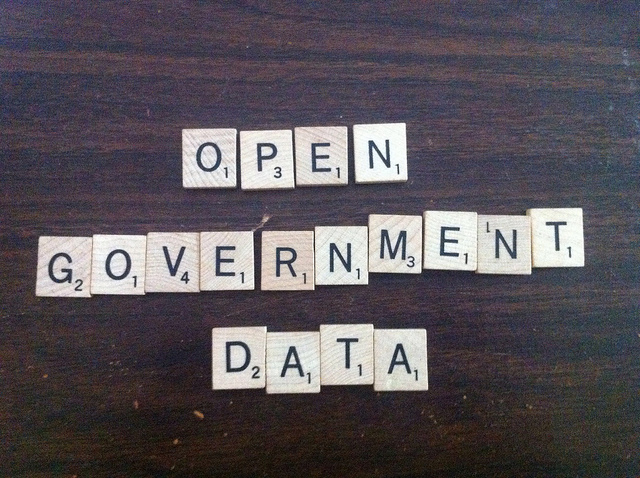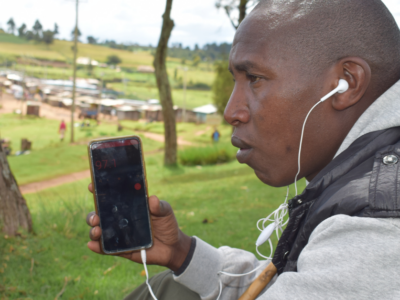Global Voices bloggers have been commissioned to liveblog the OECD Global Forum on Development in Paris on April 4-5, 2013. Leading up to the meeting, our team is submitting posts about development issues that help serve as weekly online discussion topics on their website (#OECDgfd)
The constant rise of Internet and mobile phone use is an opportunity to enable more citizens to engage with governance. Technology can help improve citizen participation in decision-making and can re-energise participation in public life. Transparency and accountability is becoming a diverse and dynamic field for exploration worldwide.
Opening the data produced by public administrations is part of an effective approach to poverty alleviation. Incredible amounts of data are produced every day, by a wide range of stakeholders: governments, media, mobile operators, citizens themselves. Despite the huge potential for using data about a society or government for the public good, it is rarely released and shared for public use. Additionally, reliable statistics can be hard to come by or are still the exclusive property of government or corporate officials.
The benefits of citizen engagement are numerous, wide-ranging and significant for all stakeholders, as Striking Poverty, a World Bank initiative, illustrates:
For the marginalized poor, participation mechanisms can provide channels for shaping solutions and holding governments accountable for policies and services delivered. For organizations, governments, and funders, engagement with communities is beneficial in that citizens will support, adopt, champion, and eventually share in the ownership and success of programs.
Does Open Data work in developing countries?
Open Data endeavours in both rich and poor countries often come up against a shortage of technical and political skills that prevent citizens from actively engaging with them. There can easily be a gap between the goals of data advocates and citizens’ understanding of the data. Still, a huge number of creative approaches to collect and make sense of data related to public life show promise that this is the most straightforward way into civic engagement.
The Kenya Open Data Initiative (KODI), the first national Open Data project in Sub-Saharan Africa, was launched in 2011. The released data sets (over 400) provide data for socially-relevant domains from education to sanitation. Kenya is in fact the first developing country to have an Open Data portal. In greater Africa, Morocco was first to launch an Open Data platform. Tunisia followed in 2011 with Open Data Tunisia.
Seizing the potential of Open Data for developing countries and the growing number of national ventures, the African Development Bank (AfDB) has launched the Open Data for Africa portal, as a part of the Africa Information Highway initiative. It encompasses Open Data platforms for the following 20 African countries:
Algeria, Cameroon, Cape Verde, Democratic Republic of Congo, Ethiopia, Malawi, Morocco, Mozambique, Namibia, Nigeria, Ghana, Rwanda, Republic of Congo, Senegal, South Africa, South Sudan, Tanzania, Tunisia, Zambia and Zimbabwe.
Although the challenges are numerous, multiple success stories show that the key to using technology for transparency and accountability efforts is to employ a collaborative approach and ensure that tools are user-friendly and quick to offer results.
A report by the Global Voices ‘Technology for Transparency’ initiative looking at citizen initiatives for transparency and accountability across the globe found that:
Data visualization and navigation tools are a key feature in more than half of the projects we documented, as are diverse forms of data collection from citizens. Approximately one third of the projects use mobile phones in some way, most commonly by allowing citizens to submit or receive information via text messages.
These observations illustrate that citizen initiatives are not only directed towards gathering data but also towards making sense of it for the wider community. The projects show great opportunity for well-managed data and related statistics released through open government data programs. The next milestone for governments in developing countries is to solve the problems of data quality and availability, as well as the technical and statistical capacity of staff and institutions.
Opening the governance
The Open Government Partnership (OGP) was launched back in September 2011 when the governments of Brazil, Indonesia, Mexico, Norway, Philippines, South Africa, United Kingdom, United States took stance in favour of more transparent governance by signing the Open Government Declaration:
The Open Government Partnership is a global effort to make governments better. We all want more transparent, effective and accountable governments — with institutions that empower citizens and are responsive to their aspirations. But this work is never easy.
It takes political leadership. It takes technical knowledge. It takes sustained effort and investment. It takes collaboration between governments and civil society.
Shortly after, the World Bank recognized the importance of the foundational principles of the Partnership and declared its support to the initiative “by facilitating knowledge exchanges and helping to build the capacity of OGP member countries to elaborate and implement their plans to become more open and responsive.”
The OGP already has 50 members. Although several African countries have presented their action plans and three of them — South Africa, Tanzania, and Kenya — have already delivered their commitments, Africa is still trailing in involvement.
The most recent OGP Africa meeting indicates that slow progress is being made, with Ghana and Liberia developing their respective ‘Action Plans’ in order to apply for membership at the Open Government Partnership.
New approaches, new challenges ahead
Is technology the panacea for developing countries? Definitely not. But it definitely paves the way for addressing open, socially and politically relevant questions. Even though the KODI has not had much impact on Kenyans, and very few African states rush to join the OGP, these dynamics are irreversible. The very existence of the endeavours described above is a solid step in the right direction.







3 comments